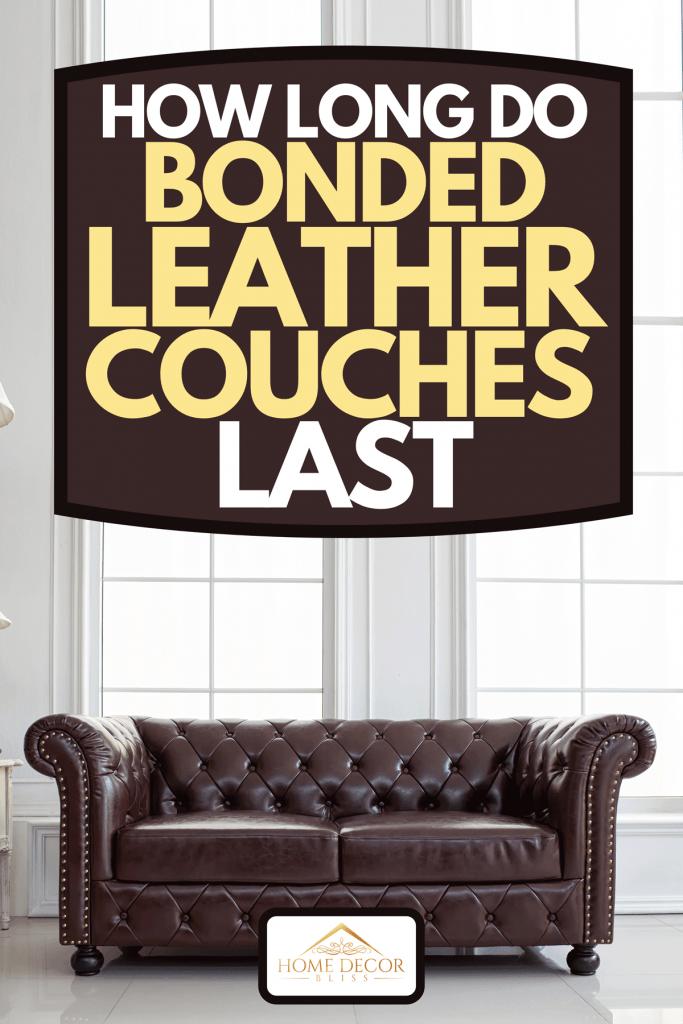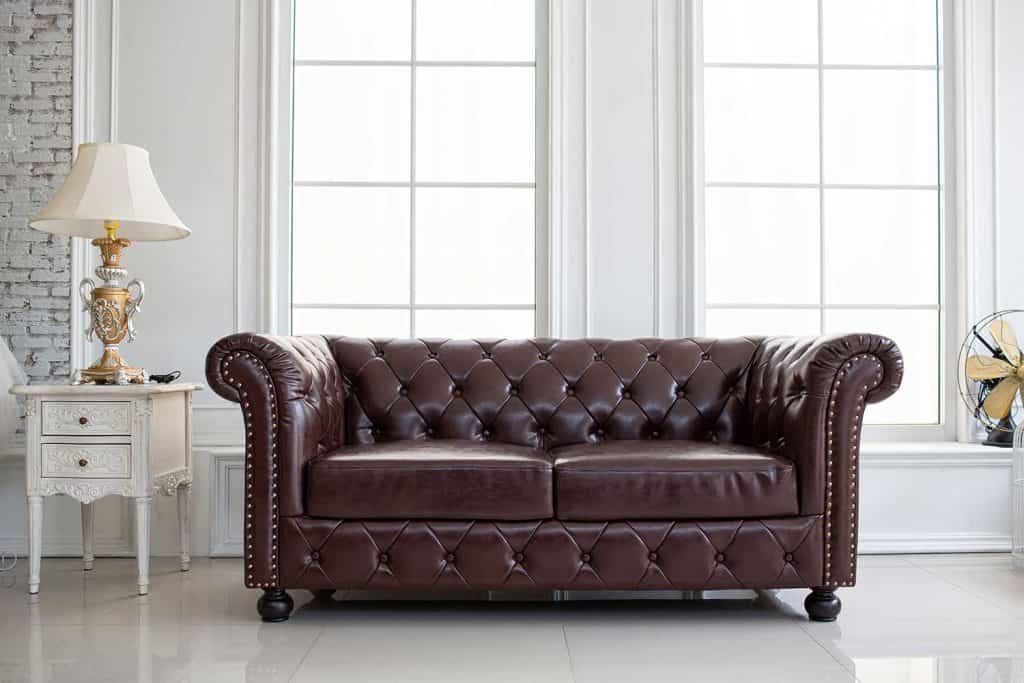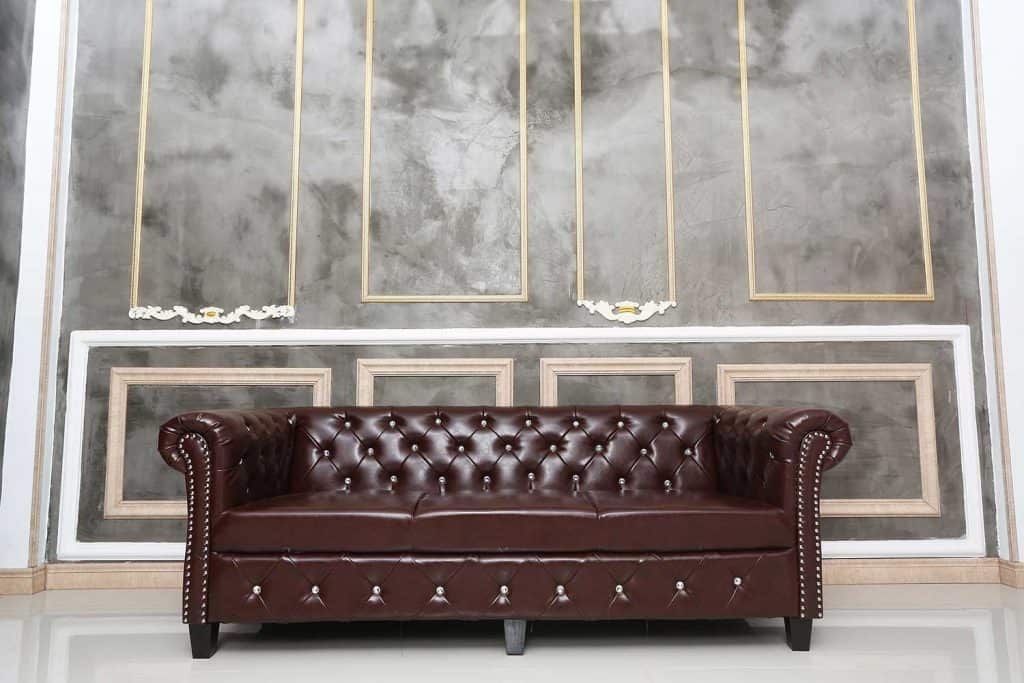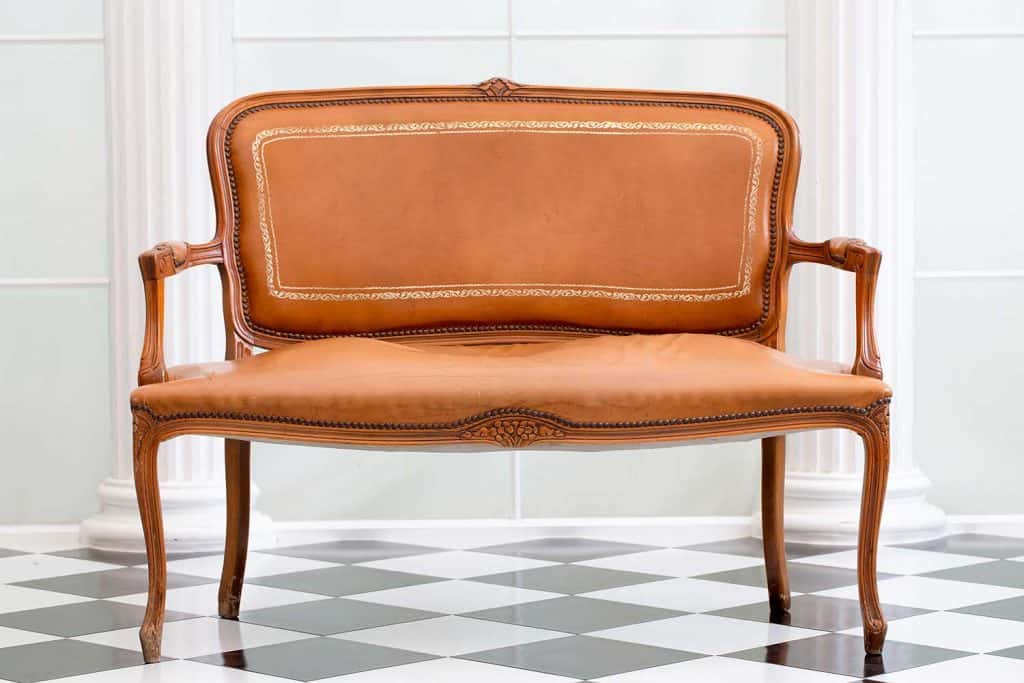In many homes across the United States, people have couches and sofas made out of bonded leather. Bonded leather isn't quite real leather, but it looks like it. Most people who choose to have a bonded leather couch do so because they want to save a couple of bucks on furniture. But, is this really a way to save money? Our research on this couch material's lifespan might make you think twice.
Though bonded leather initially has a fairly elegant look and feel, it's notably short-lived. Most bonded leather couches will last an average of two to three years. If kept in immaculate condition and used rarely, it may be possible to make your couch last for up to five years.
If you have been thinking about buying a bonded leather couch, it's important to understand what you can expect from this couch material. Chances are, it may play a bigger role in your buying time than you'd think. Please keep reading to learn more!

How Can You Tell If It's Bonded Leather?
We sometimes add affiliate links and content that was curated and created by our team with the help of advanced ai tools to help showcase the best design styles.

The first thing you should be aware of when it comes to bonded leather is whether the couch you're buying is bonded leather. Bonded leather is not real leather. In most cases, leather furniture will be proud to mention their material. Bonded leather, on the other hand, often won't mention a word about the material. Still, that's not enough to be sure.
Bonded leather tends to feel more even than regular leather, and also may look unnaturally perfect at first glance. The most common telltale sign, though, is the smell. Bonded leather does not have the characteristic smell of regular leather. In many cases, it may be odorless or slightly chemical in odor.
Is Bonded Leather More Durable Than Faux Leather?
It's important to remember that faux leather and bonded leather aren't quite the same things either. Faux leather is a lot more passable than bonded leather. Bonded leather is a strange mix of real and faux leather. At first glance, one would expect bonded leather to be the more durable of the two, but it's not.
As it turns out, bonded leather's build means that the multiple layers of materials tend to shift apart from one another. This can lead to a lot of different problems sooner than you'd think. If you want to choose the more durable option, faux leather is the best choice for you.
Does Bonded Leather Crack?
Bonded leather's biggest drawback is cracking. When it gets too dry or becomes overused, the first thing owners will notice are large, gaping cracks in the material. Shortly after the bonded leather cracks, the surface starts to peel off. This leads to a frayed appearance that's neither comfortable to look at or sit on.
Because of bonded leather's propensity for cracking and peeling, most people try to avoid it at all costs. It's better to research different leather types to find a better, more durable match for your home. However, there is some good news for people who are stuck with a bonded leather couch.
How to Prevent Bonded Leather From Cracking
Though the outlook for bonded leather is grim, there are ways you can extend the lifespan of the couch you own. The best way to keep your couch pristine is to keep it clean, avoid exposing it to high heat, and to avoid rough usage.
Bonded leather is more likely to crack and peel when exposed to jagged surfaces or frequent, repeated motions. So, if you have a pet, this is not the couch you want them to sit on. Heavy usage and bonded leather don't mix, so it may be better to leave this material as a guest room couch material.
Should You Condition Bonded Leather?

Counterintuitive as it seems, experts advise that you should condition bonded leather. If you want to make the most of your couch's lifespan, you should condition it at least twice a year.
Why Condition Bonded Leather?
Conditioning bonded leather helps keep the leather portions of the material supple, which, in turn, can help reduce cracking and peeling. In some cases, it can also help moisturize the materials in faux leather too. Since conditioner also helps protect the material from heat, it acts as a great damage control product.
How to Condition Bonded Leather Couches
Conditioning your couch is not going to be the same procedure as what you may expect from a genuine leather couch. Bonded leather is picky like that. Here's what you will need to do when you want to condition your bonded leather correctly:
- Start by choosing the right conditioner.
- Apply the conditioner and gently wipe down the couch's surface, giving extra attention to the couch's arms and seat. Do not rub or scrub the conditioner in, as this can exacerbate peeling.
- Wipe down excess conditioner with a dry microfiber rag.
The Best Leather Conditioner For Bonded Leather
The most common mistake that most people new to bonded leather make is choosing the wrong leather conditioner. It's important to remember that bonded leather is a mixture of multiple layers of leather with faux leather. This means that conditioners that require you to rub and scrub will actually harm the leather rather than help it.
This means that using a wax-based conditioner that involves buffing or scrubbing is a bad move. The best type of leather conditioner to use is a soapy, liquid leather conditioner with a heavy emphasis on moisturizing. Ideally, the conditioner that you choose will have a low-grease texture.
For most couch owners, Leather Honey is the best leather conditioner you can use on bonded leather. A favorite among professional detailers, this conditioner is famous for its gentle usage. It can be used on bonded leather couches, car seats, and virtually anything that is even remotely leather-like.
Click here to buy Leather Honey from Amazon.
Is Buying A Bonded Leather Couch Worth It?

If you were hoping to save money on a couch that would become an heirloom item, bonded leather isn't a good choice. This is one of the most brittle couch materials in terms of leather-like substances. If you are just looking for a cheap couch that looks like leather but doesn't involve harming animals, faux leather is the best bet.
In terms of durability, buying a bonded leather couch is rarely, if ever, worth it. It's far easier (and more cost-effective) to care for a leather couch than it is to continually replace bonded leather couches. Moreover, bonded leather couches are not as easy to repair as real leather. You can repair a genuine leather couch with ease, as long as you know what you're doing.
Overall, this is not the ideal material for a couch. So, let the buyer beware!
Conclusion
Bonded leather couches might have a luxurious veneer when you first see them on the showroom floor but don't be taken in by their pretty appearance. If you buy bonded leather, you should only expect it to stay in shape for two to three years on average. This makes bonded leather seating a bad choice for people who want durability. Faux leather is a better pick.
However, there will always be moments where you fall in love with a couch's design. If you insist on getting a bonded leather furniture piece for your home, there are ways to help prevent cracking from happening. With a little careful maintenance and making sure that you don't keep your couch near a source of dry heat, it's possible to extend its life as long as possible.

